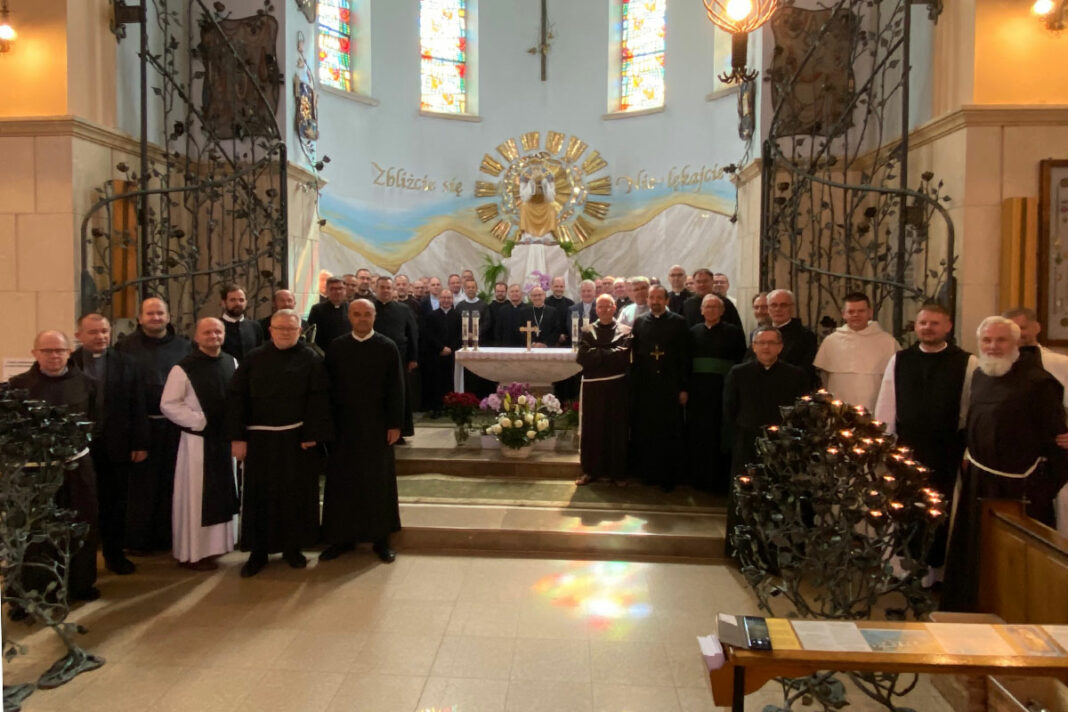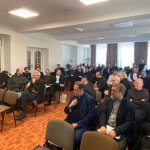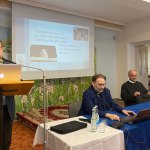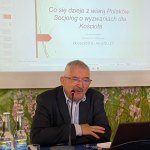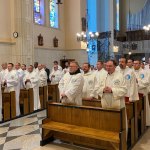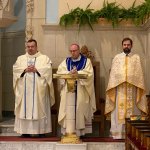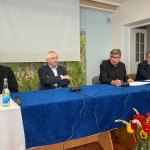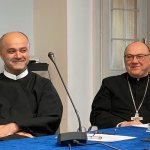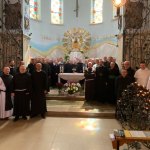On May 10-11, 2022, the 148th plenary meeting of the Conference of Major Superiors of Men’s Religious Orders of Poland (KWPZM) took place at the Shrine of Our Lady of La Salette in Dębowiec, near Jasło, Poland. The theme of the meeting was: “The Church after the Pandemic.”
Father Zbigniew FORMELLA, SDB, of the Salesian Pontifical University in Rome, gave a lecture on the effects of the pandemic, namely, fatigue, boredom, fear, disorientation, loneliness, self-enclosure, lack of initiative, burnout, bad habits and addictions. These phenomena have also been observed among consecrated people, as confirmed by ongoing research. To overcome these effects of the pandemic, several educational measures should be implemented: dialogue, conversation, discussion, listening, paying attention to others’ behaviors, community initiatives, searching for documented information, community verification, and concrete activities.
Doctor Krzysztof KOSEŁA, a sociologist from the University of Warsaw, citing his own research, spoke about the factors that currently influence the faith of the Polish people. Among them were secularization, the Internet (life in front of the screen), decreasing trust in religious institutions, and changes in family life. He also noted that since 2019, an unprecedented and rapid change has been observed in the religious attitudes and behavior of the Polish people, especially among the younger generation. He presented graphs showing that the most worrying phenomenon is the increasing degree of non-belief among young people born after 1997, especially among young women. In his opinion, the Church must make new attempts to attract young people through a faith environment created by peers, for example, by organizing youth meetings.
Father Henryk ZIELIŃSKI, Editor-in-Chief of the Catholic weekly Idziemy, lectured on the topic, “Christianity in a Time of Confusion: Special Tasks of Men’s Religious Orders in the Context of Current Challenges and the Rapid Secularization of the Polish People.” In his opinion, one of the things that should be done is to restore priestly and religious identity; to restore dignity to the family and marriage; to be less concerned about the number of religious and more concerned about their quality; to give a clear, even heroic, witness to life according to the evangelical counsels; to meet people in humility; to be available and open; to avoid flashy activities; to take advantage of the dynamism of the masculine personality; to not give legitimacy to authorities with questionable credentials; to celebrate the sacraments and sacramentals with integrity; to be present in the digital environment; to promote healthy Marian devotion; and to organize pilgrimages.
On the second day of the meeting, the Superiors listened to several reports, including one by Father Robert WAWRZENIECKI, OMI, the Executive Secretary of the KWPZM. His report detailed the involvement of men’s religious Orders in helping refugees from Ukraine.
The Superiors also met with the Most Reverend Jacek KICIŃSKI, Auxiliary Bishop of Wrocław, Poland, and President of the Commission for Consecrated Life and Societies of Apostolic Life of the Polish Bishops’ Conference. In his speech Bishop KICIŃSKI emphasized that believing, listening and witnessing are the three pillars of religious life.
The KWPZM was established by the Major Superiors in December of 1948, with the approval of Adam Stefan Cardinal SAPIEHA, and was approved by a decree from the then Congregation for Religious on November 30, 1963. At present, the KWPZM includes fifty-nine men’s religious families. Its goals and activities are to foster cooperation among religious institutes; to work with the Polish Bishops’ Conference and other conferences of Major Superiors in Poland and Europe; to promote knowledge of consecrated life; and to carry out various financial activities.
Friar Jan M. SZEWEK






